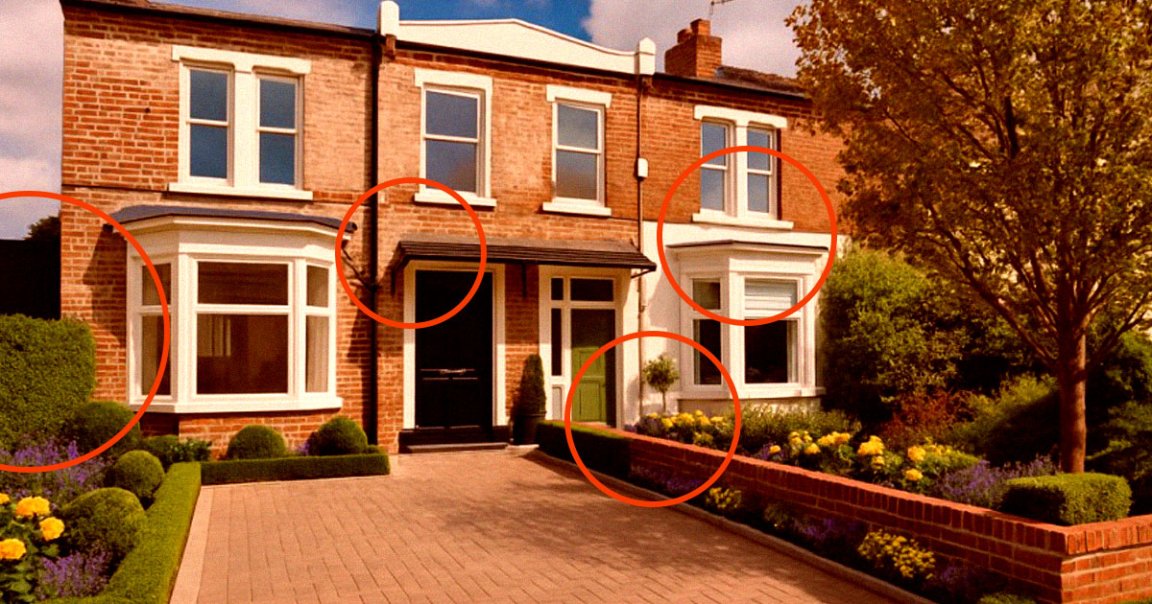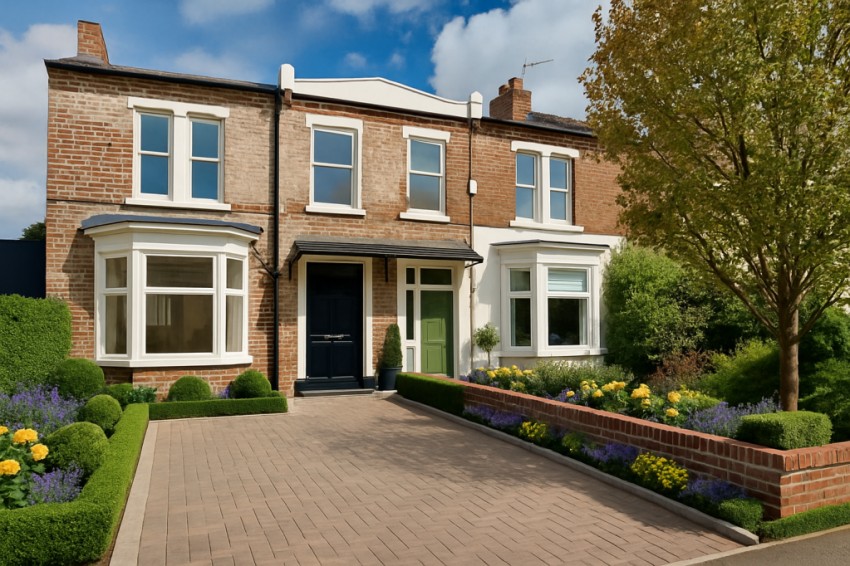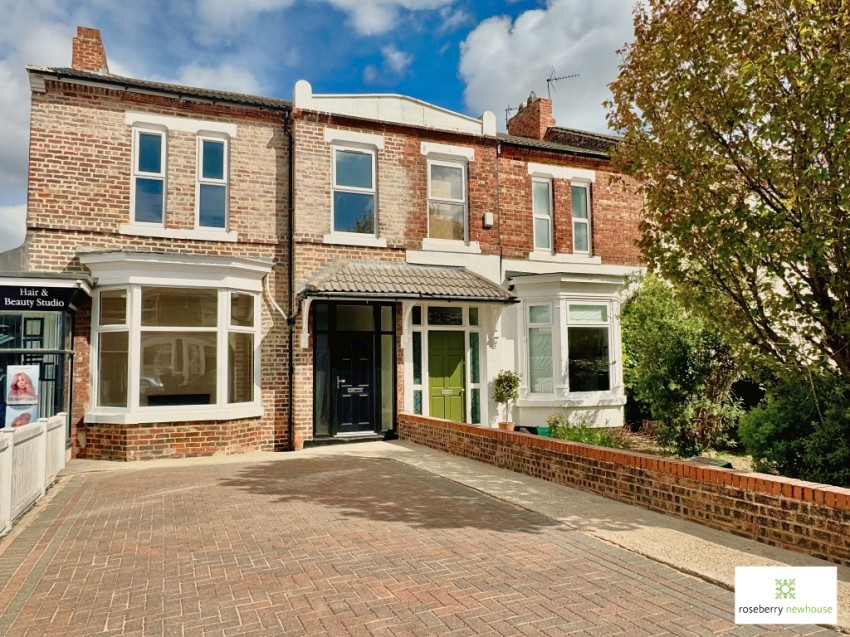
As if suspiciously AI-generated descriptions of real estate listings weren’t enough, agents are starting to use AI-generated images of houses that don’t exist to sell expensive properties.
The Register spotted a dubious listing of a fully renovated 3-bedroom in the UK with a photo — which has since been deleted, but can still be viewed in an archived version — that shows the tell-tale signs of generative AI, including awnings that don’t line up, hedges that inexplicably turn into walls, and a flowerbed obstructing a neighboring door.

The real — or at least less-edited — version of the image tells a dramatically different story, with a tiled awning, no flowerbed obstructing the path to the neighboring door, and an adjoining hair salon that was seemingly deleted from the tampered-with version entirely.

In some ways, the haphazard use of AI shouldn’t come as much of a surprise. The real estate world has long made use of CGI tools to virtually “stage” homes, a cost-cutting measure designed to save agencies from having to physically move furniture around.
But given the damning evidence — alongside society’s current obsession with shoehorning generative AI into virtually every aspect of modern life — the trend has seemingly found its next logical application.
And we’re not just talking about photoshopping a couch into the photo of an empty living room. As The Register points out, the original listing of the house pictured above confused entire structural elements, down to the placement of the toilet in the bathroom.
Reached by The Register, a spokesperson for the agency responsible for the AI carnage responded with a “sharp intake of breath and a declaration that ‘we’re a little busy at the moment.'” It didn’t reply to followup questions.
The trend paints a troubled picture of an industry that already has a tarnished reputation for twisting the truth. It’s a worrying reality, given that entire livelihoods are being put on the line in the pursuit of buying one’s dream home.
Worse, experts say this kind of use of AI could even run afoul of the law.
“For me, the use of AI for imagery in property listings is a major red flag aligned to what was previously covered by the Property Misdescriptions Act,” University of Reading associate professor of building surveying Adrian Tagg told The Register.
Tagg explained that building surveyors are “bound by regulations to deliver evidence-based opinion and hold a duty of care to deliver correct, appropriate advice.”
“Estate agency has never really had this professional duty, and ultimately it’s all about sales and doing ‘the deal,'” he explained. “Therefore I’m not surprised that there appears an openness to accept AI when ultimately it’s an industry with little obligation to be accountable for their actions.”
Despite very real concerns of misleading home buyers, the real estate market has welcomed the age of generative AI with open arms. Consultancy firm McKinsey & Company predicted in 2023 that the tech could “generate $110 billion to $180 billion or more in value for the real estate industry.”
The consultancy said that generative AI could help in “customer engagement,” and generating “new creative content,” among other use cases.
An entire cottage industry has cropped up, offering cheap, “AI-powered virtual staging” and real estate “photo editing” services.
But prospective buyers are understandably furious.
Earlier this year, one user in the FirstTimeHomeBuyer subreddit came across a listing on Zillow, which included a (since-deleted) picture of a small bungalow in Newport, Kentucky. The heavily edited image didn’t even get the house number right, showing up as a mangled “418,” instead of 1026.
“Using AI in listing photos should be illegal,” the user wrote.
More on generative AI: Microsoft Releases List of Jobs Most and Least Likely to Be Replaced by AI